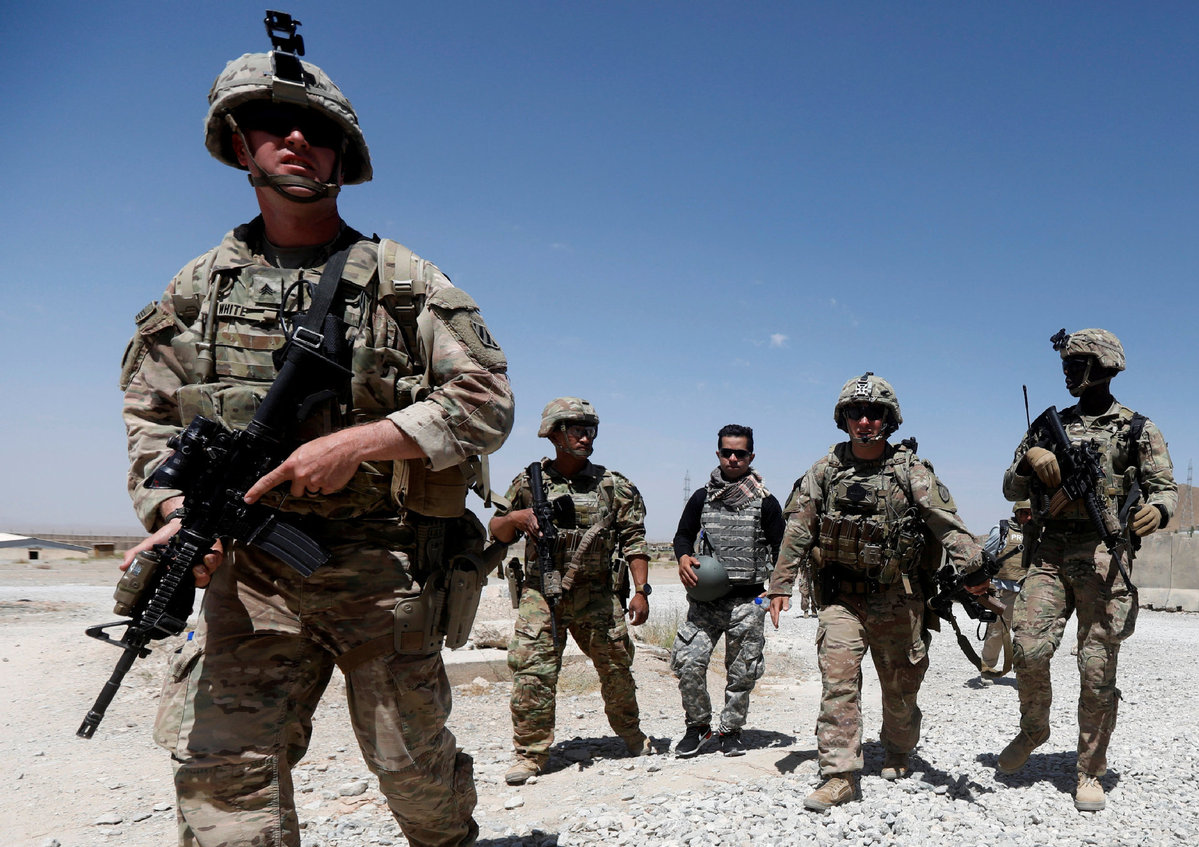Space force shows that US is still obsessed with military superiority: China Daily editorial
chinadaily.com.cn | Updated: 2019-12-19 21:01

After the United States House of Representatives passed it last week, the 2020 National Defense Authorization Act received Senate approval on Tuesday.
US President Donald Trump has already declared that he will sign it as soon as it goes through the Congress, praising it last week on Twitter for including all of his priorities.
That the NDAA has received overwhelming, bicameral endorsement in a Congress that is severely divided is telling proof that national security is a rare topic that can rally the broadest consensus among the US political elites these days.
They are dramatically divided on various other subjects, from Medicare to taxation to immigration. But they demonstrate unprecedented unanimity on such issues as alleged "threats" from China and Russia.
In spite of objections citing the country's "skyrocketing" national debt, the NDAA increases defense spending by about 2.8 percent, or $20 billion. Behind it is obviously a deep sense of insecurity stemming from the belief that the US is losing its military "overmatch".
The record-setting $738 billion defense policy bill is certainly a daunting sum. But the figure in itself doesn't matter that much, even without the increase. Because the US military has always far outspent any other counterpart.
Rather than the numerical increment in defense spending, the 2020 NDAA stands out because it adds a brand-new branch to the world's most powerful military — the US Space Force.
The creation of the new force, the first in six decades, means the US military is officially expanding its war fighting domain.
Defining space as a theater of war is against the international community's longstanding call for international cooperation on the peaceful exploration and use of space, and it inevitably constitutes threats to the security of other countries.
But decision-makers in Washington seem convinced that this is the only way to maintain their country's military superiority over the rest of the world.
This is understandable considering the US' global leadership rests heavily on its unrivaled military prowess. For too long, US strategic thinking has been dominated by the idea that its military must be far ahead of the rest of the world, and capable of simultaneously fighting multiple wars and winning them.
Allowing any other countries, especially non-allies, to catch up is unacceptable.
Inaugurating the Space Force certainly will give the US military added advantages over its perceived rivals, and help cement existing ones in traditional realms.
But it will also trigger a new round of military competition, ushering in a new arms race.
The move to weaponize space — the commonwealth of all humanity — is deeply worrying. The international community should stand as one to oppose the US turning outer space into a potential battlefield and, as China urges, work together to establish a legal framework for outer space arms control.
























